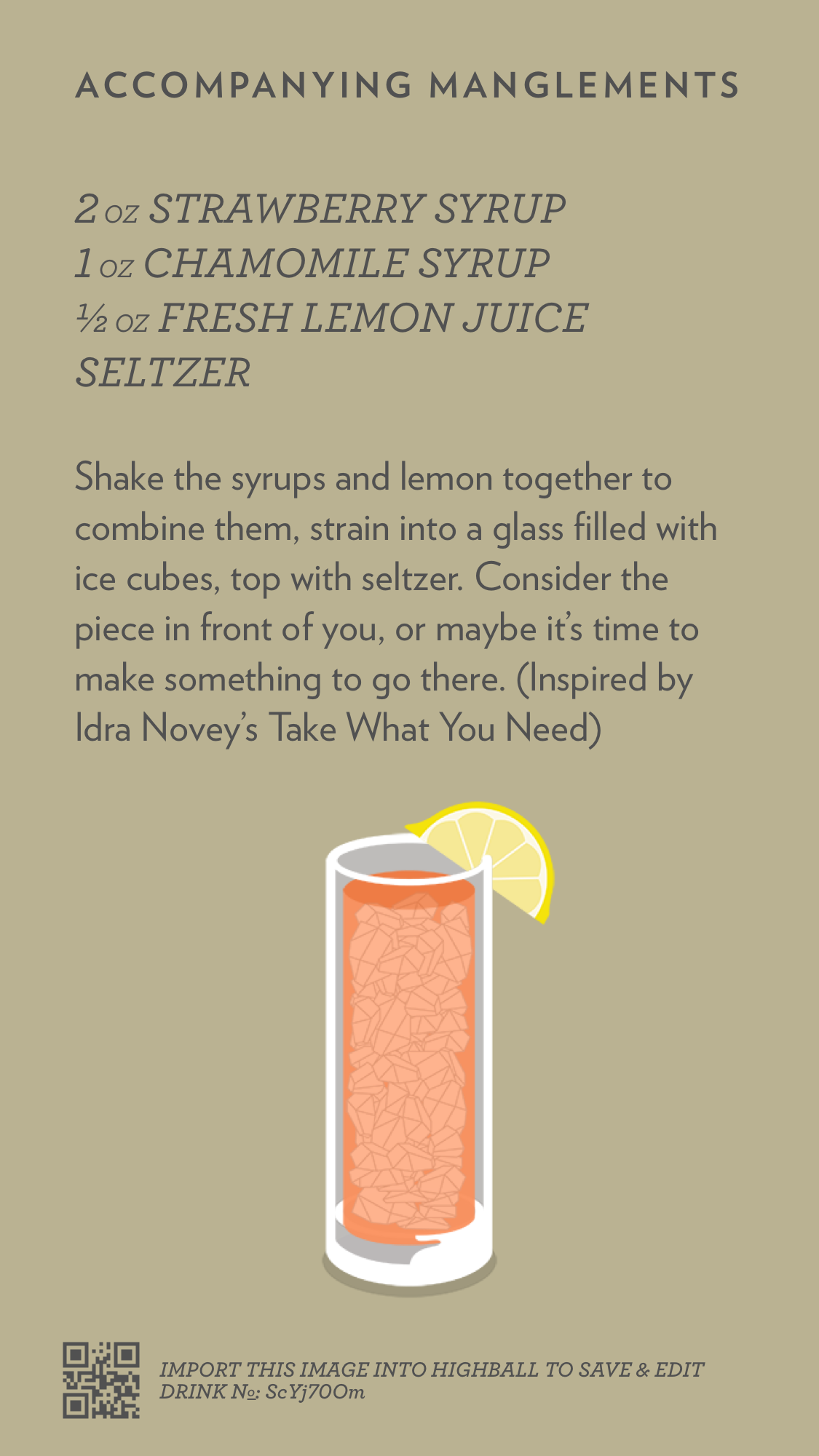Idra Novey: How to Pack a Punch in a Short Novel
In Conversation with Christopher Hermelin on So Many Damn Books
Subscribe and download the episode, wherever you get your podcasts!
Idra Novey actually drops by the Damn Library IN PERSON to discuss her stunning new book, Take What You Need, creating an artist’s practice, torching things, and short novels. Also, she brought along César Aira’s On Contemporary Art to accompany the art on display in the text of her book.
*
From the episode:
Christopher: In the acknowledgments, you do thank a metal shop?
Idra: I do. Yeah.
Christopher: It made me wonder if you set out to try to make some art? Just so you knew how it felt? And how did that all go?
Idra: Well, I learned to weld, because I wanted to learn how to weld. And my family has a scrapyard in Leicester, Pennsylvania, which is sort of the idea where I got the scrap yard, where Jean gets her scrap metal is from her cousins. And so my mother’s cousin runs the Novey Scrap Yard. We never had any material connection to it. It was patrilineal. So it went from my great grandfather to his son, to his son, etc.
So I descend from the women of that family so I’ve never had a material connection to it, and actually had never been there. But I wanted to go because my namesake, Ida Nova, started the scrap yard in 1906. So in some way, this became an homage, I think, to Ida Nova because I have her name (except for the “R”), and I never met her.
And so I went back and saw the scrap yard, and I just didn’t feel any connection to because I don’t actually, I maybe I’m a little scrappy, but I don’t actually know that much about scrap metal. So this became a way—welding with scrap metal—to connect to this namesake I never met. And to do something as a writer and as an artist with scrap metal, because it wasn’t my material legacy. But I can choose it as a legacy.
Christopher: So how was welding?
Idra: It’s so fun. I highly recommend torching things.
Christopher: Yeah?
Idra: Yes. You get to cover your face. You have to put this thing over your face because the light is so sharp, it can sort of burn your retina. I really liked making art where you’re actually sort of masked. It’s kind of fun, but then you can’t actually see that well unless you have a very clean mask. It’s very tricky work to sort of get the weld right. And if you do it too long, you burn through the metal. But if you do it, not quite, not enough, you don’t melt it. So it really requires great skill and great eyesight.
But I think—you have this mask over, and so I had no idea of the physical challenges of doing it. They became really interesting to me. I studied welding with three different people, and they all had very different ideas about how to make a box, which is interesting because it’s just six sides.
Christopher: Right.
Idra: And that was fascinating to me.
Christopher: Yeah. I mean, it’s sort of like that old Carl Sagan quote, like, how do you make a pie? Well you first you have to create the universe? Like, how do you make a box? I just feel like you could make that a real philosophical question.
Idra: It really is. It really is. Like sometimes when you write, it’s as simple, as straightforward as a pie might be, or a box might be, that actually it’s very revealing of somebody’s sensibility. What do you do with six sides? Do you let some light in? Do you seal it up? What do you do with your sides? You know?
Christopher: Yeah. Do you leave the box open? Because otherwise it’s a cube? I don’t know.
Idra: I mean, I think for Jean, she’s been so boxed in by her father, by her ex-husband, by the choices she’s had. That for her, letting light in is the reason for the box.
Christopher: Your novels are all on the shorter side. And I love short novels, but these don’t feel like other short novels. Like they don’t feel like they cut off halfway through or something. They feel complete. I just feel like they’re so satisfying. And I would be curious to know if you have sort of a philosophy about short novels or is this just… how long your novels are?
Idra: Thank you. That’s very validating to hear, because I think we do often equate length with sort of heft in terms of reader experience. But I don’t really think that they are proportional. And I love short novels too, simply because I don’t like extra words. I like concision, I like understatement. I like novels that move from intense sensory moments. And I think that I’m not drawn to write connective tissue. I don’t need to get somebody in the door, hang up the coat, take off their shoes, put on their slippers.
I’m a big fan of slippers, you know, but I don’t need to see all of that. I know that sometimes radical thoughts can happen when you hang up your coat and, very tense, provocative moments can happen in those in-between spaces, but not to just put the connective tissue in just because you need to lead from one scene to another. Like, I just think that those kinds of conventions aren’t of interest to me as a writer.
Christopher: Hmm. How do you feel when a novel shows up that people are talking about and it’s like a thousand pages? Do you feel like people need to edit or can you fall into a long novel as well?
Idra: I wish all those people good luck.
*





















